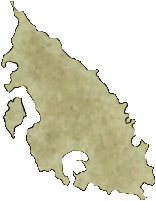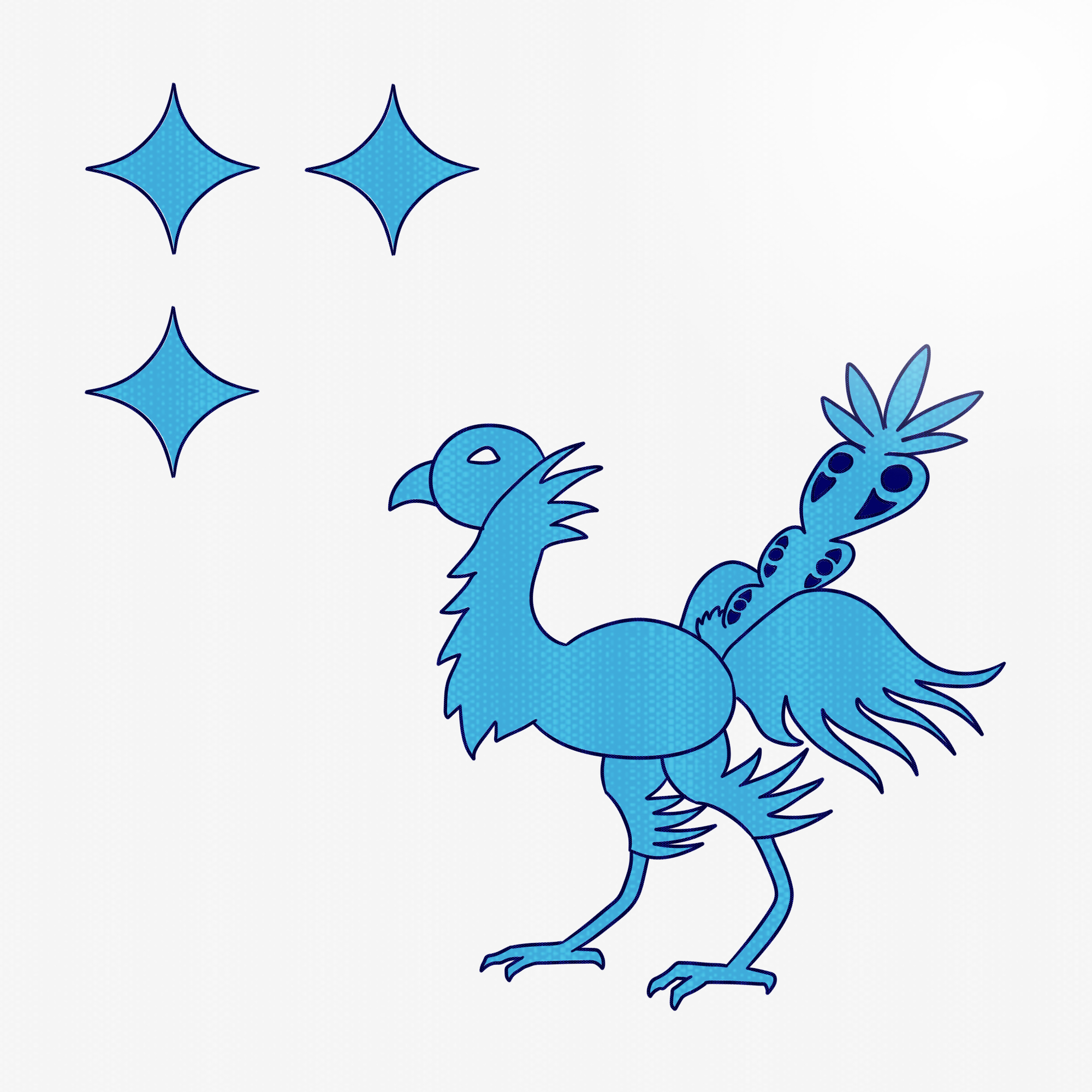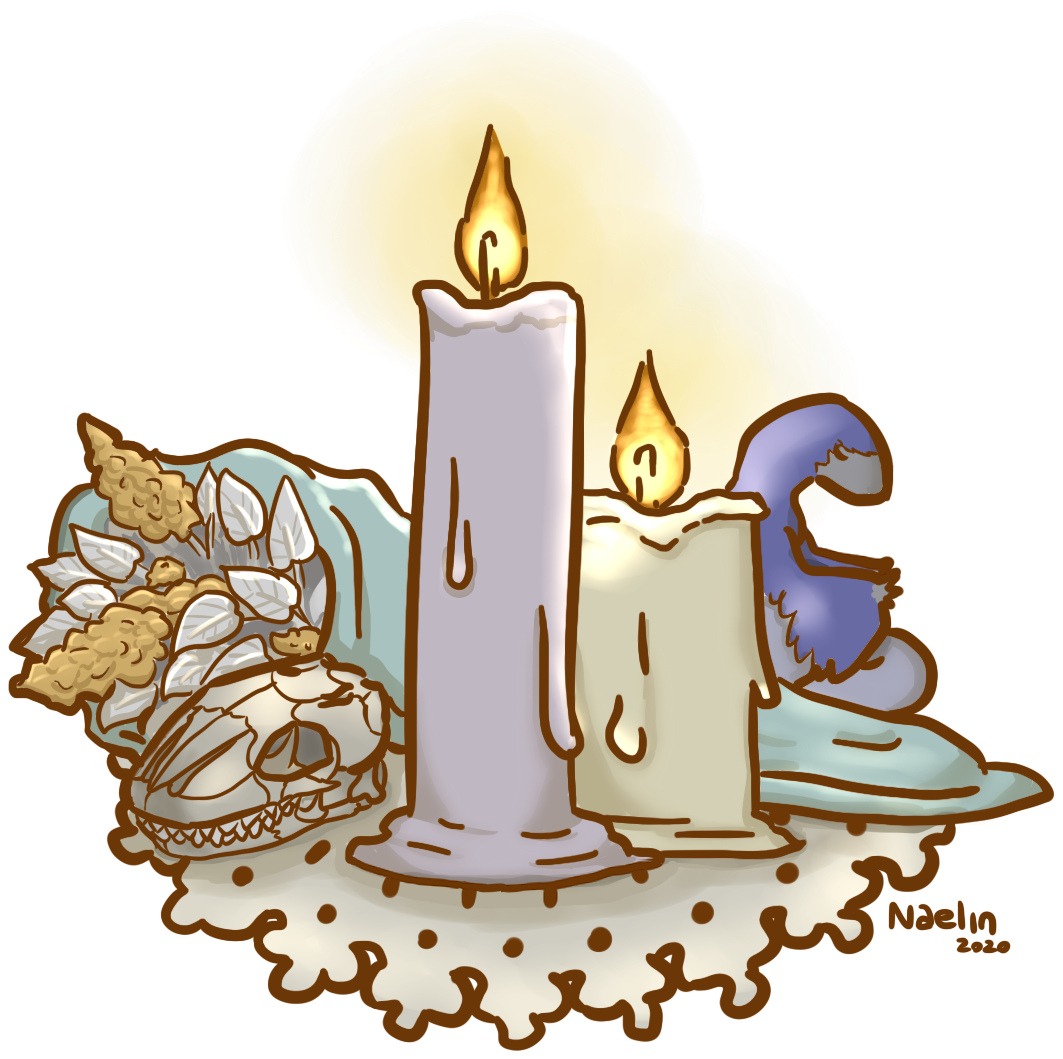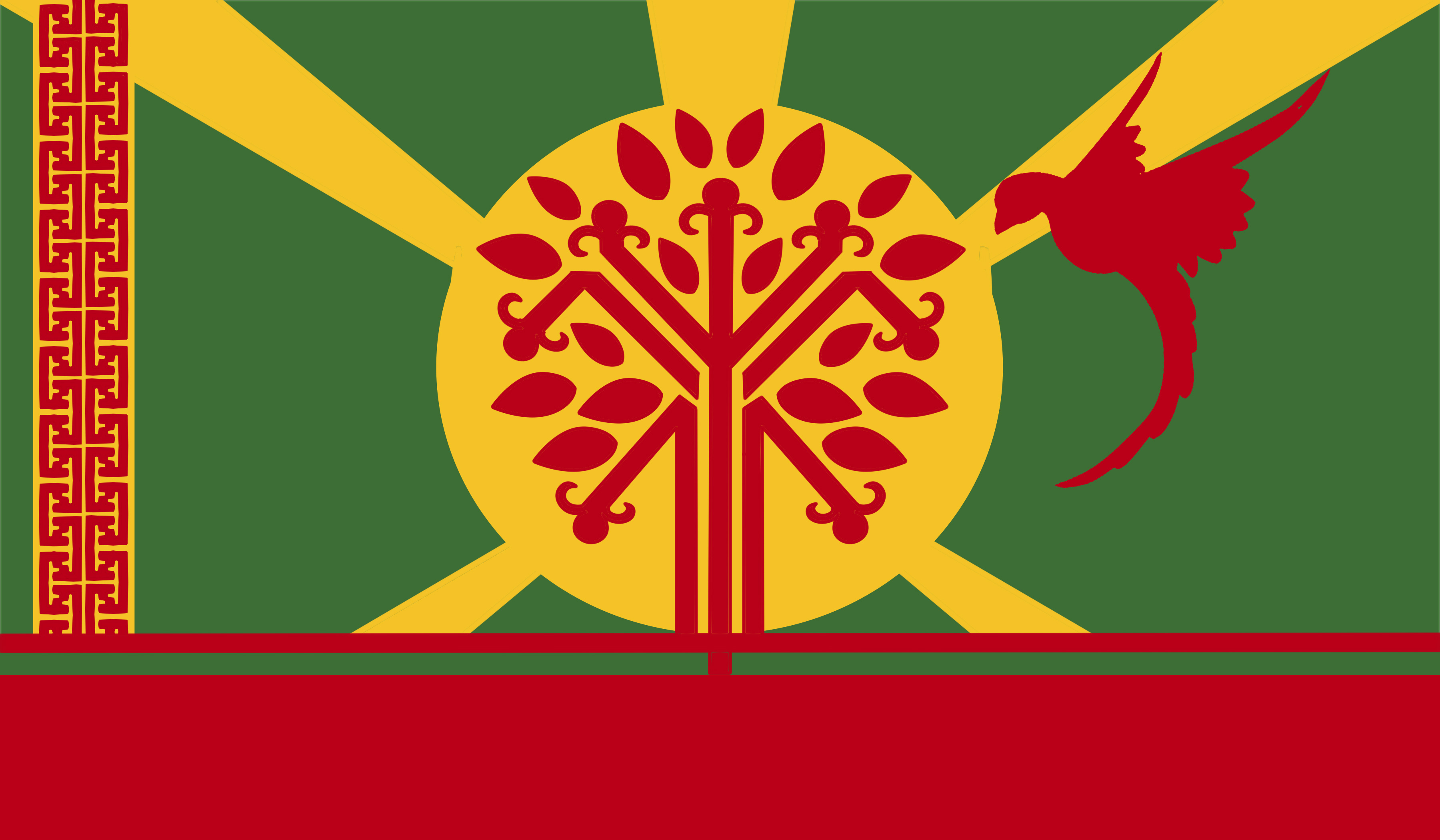Stunveldti
More than 430 years after they opened their borders to the rest of the archipelago, the inhabitants of the island of Stunveldt are still known to be distrustful of anything foreign to them.
However, they are now a thriving community that receives visitors from many places, as they are the main producers of teobrew, the plant which seeds and leaves are used for dozens of things including chocolate and coffee. The Stunveldti are an incredibly culturally rich nation that places very high importance in arts and tradition, wealth distribution, sense of patriotism, and strenght through differences.
The coastal area of the island is populated by waterland silkies, the dense jungles in the middle has a high population of the rare segmented, and the space in between, as well as the areas close to Ruh, are populated by scalies. Instead of division, this diversity created unity and strength, with each race being viewed as having different sets of valued skills and abilities to be used to the advantage of the whole nation.
Shifting: People that go through periods of associating with different social and cultural roles in waves, and as such are perceived as less fit for forming families, but useful for positions that require adaptability, usually in the military.
Men: When the category fits, this gender is usually filled by male-acting individuals. They are deemed fitting for design and arts professions, for complex delicate tasks and for working in groups.
Women: When the category fits, this gender is usually represented more by female individuals, which in Stunveldt usually are quite bigger than males. They are deemed fitting for the nurturing of eggs, raising of children and works requiring strength and physically heavy activities.
Neutral: The rarest of Stunveldti's genders, neutrals are highly empathetic, fierce people with great strength of mind and of ideals. Neutrals are assigned by the society and are highly regarded, often being welcomed into positions of extreme respect such as death doulas, political leaders or diplomats.
The Stunveldti were for millenia the only producers of Drink of Gods, a plant with beans of mentally stimulating properties that are used to make lots of highly important products such as coffee, chocolate, oils and butters.
They have no coins, and use the teobrew beans as their currency, though their economic system is more based on trade, being highly critical of wealth hoarding. The combination of their secretive, distrustful nature with the importance of the teobrew and their distinctive traditions made their products very attractive to people from the rest of the archipelago, who seek any Stunveldti thing they can get their hands on as exotic novelties. While disgusted by it, the Stunveldti had made a lot of wealth for their communities exporting souvenir versions of their traditional crafts, such as decorative Destiny's Guts decks.
They consider it a passageway into eternity, in which one has to aim to help their loved ones go through in peace and good company. Due to this, they take great care of anyone close to death on their communities, usually hiring professional Death Doula for helping them sort their affairs and be comfortable as they die.
People in death-related professions are highly esteemed, and these positions are usually reserved for people of neutral gender. The Stunveldti bury their dead in a special town on the centre of the island, by setting the bodies on open pits for critters of the jungle to eat them while in place. After the scavenger activity has passed, the pit is covered with fertile soil for plants to grow on it again. This is all done around their belief that they are part of their island, and the greatest honour is to become part of its natural cycle, with that's left remaining in the heart of it.
However, they are now a thriving community that receives visitors from many places, as they are the main producers of teobrew, the plant which seeds and leaves are used for dozens of things including chocolate and coffee. The Stunveldti are an incredibly culturally rich nation that places very high importance in arts and tradition, wealth distribution, sense of patriotism, and strenght through differences.
Demography
Unlike other islands, Stunveldt happens to be populated by three types of societarian in roughly equal measure:The coastal area of the island is populated by waterland silkies, the dense jungles in the middle has a high population of the rare segmented, and the space in between, as well as the areas close to Ruh, are populated by scalies. Instead of division, this diversity created unity and strength, with each race being viewed as having different sets of valued skills and abilities to be used to the advantage of the whole nation.
Diplomacy
The island of Stunveldt was closed to any kind of immigration or trade except with their close only allies, the nation of Ruh, until 2586 E.Alz when they decided to open their borders. This generated a cultural explosion thanks to the introduction of Teobrew to other islands, but while the island became essentially rich, they stayed very wary of any outside influence. They are still only welcoming immigration from Ruh, and still with them, they prefer each to stay on their own islands.Genders & Social Roles
As many other cultures, the Stunveldti recognize four genders. It is relevant to note that Stunveldti people have phenotypes with complex or unusual categories of sexes more often than those of other islands, so their conventions are less tied to their bodies than in other cultures. However, they are stricter on their definitions, and while people are not bound from birth to a gender, they are expected to perform within its boundaries of the one they find with immense pressure.Beans & Exotism
The Stunveldti were for millenia the only producers of Drink of Gods, a plant with beans of mentally stimulating properties that are used to make lots of highly important products such as coffee, chocolate, oils and butters.They have no coins, and use the teobrew beans as their currency, though their economic system is more based on trade, being highly critical of wealth hoarding. The combination of their secretive, distrustful nature with the importance of the teobrew and their distinctive traditions made their products very attractive to people from the rest of the archipelago, who seek any Stunveldti thing they can get their hands on as exotic novelties. While disgusted by it, the Stunveldti had made a lot of wealth for their communities exporting souvenir versions of their traditional crafts, such as decorative Destiny's Guts decks.
Arts and culture
Thoughts on Death
Death is regarded with great care and kindness by the Stunveldti, but also with openness and normalcy.They consider it a passageway into eternity, in which one has to aim to help their loved ones go through in peace and good company. Due to this, they take great care of anyone close to death on their communities, usually hiring professional Death Doula for helping them sort their affairs and be comfortable as they die.
People in death-related professions are highly esteemed, and these positions are usually reserved for people of neutral gender. The Stunveldti bury their dead in a special town on the centre of the island, by setting the bodies on open pits for critters of the jungle to eat them while in place. After the scavenger activity has passed, the pit is covered with fertile soil for plants to grow on it again. This is all done around their belief that they are part of their island, and the greatest honour is to become part of its natural cycle, with that's left remaining in the heart of it.
The Day of Admiration
No matter the importance that their society place on a profession, this society considers that your highest point in life is when you reach the mastery of your profession, being able to perform it as a true professional. This point in life is celebrated with the The Day of Admiration, a big celebration of the individual in which they will wear an special outfit made out of pieces gifted by the important people in their life.Destiny's guts
Narrative games are popular on the island of Stunveldti, with the most representative one being Destiny's Guts, a card game played in groups, where each person adds pieces to a story in order, being guided in topic and tone by the cards that are drawn. The Destiny's guts deck is popular as a keepsake both in and out of the island, as the cards are representative of lots of details of their culture and craft.
Alternative Demonyms
Veldt
Recognized Genders
Woman
Man
Neutral
Shifting
Veldt
Recognized Genders
Woman
Man
Neutral
Shifting
Encompassed species
Related Locations







This is such a nice culture. I love their thoughts on death in particular. :)